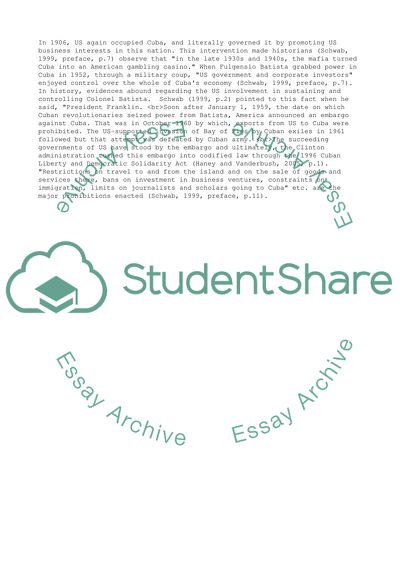Cite this document
(“U.S. Embargo on Cuba Term Paper Example | Topics and Well Written Essays - 2250 words”, n.d.)
Retrieved from https://studentshare.org/business/1560474-us-embargo-on-cuba
Retrieved from https://studentshare.org/business/1560474-us-embargo-on-cuba
(U.S. Embargo on Cuba Term Paper Example | Topics and Well Written Essays - 2250 Words)
https://studentshare.org/business/1560474-us-embargo-on-cuba.
https://studentshare.org/business/1560474-us-embargo-on-cuba.
“U.S. Embargo on Cuba Term Paper Example | Topics and Well Written Essays - 2250 Words”, n.d. https://studentshare.org/business/1560474-us-embargo-on-cuba.


